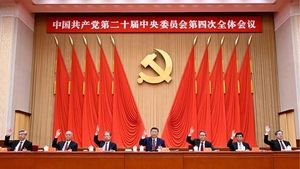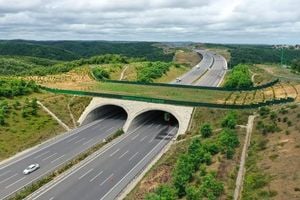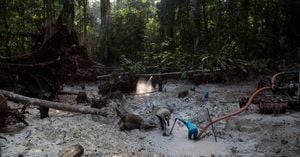The landscape of Brazil's pharmaceutical and broader economic sectors has witnessed substantial developments this year, spearheaded by record-breaking financial support from the National Bank for Economic and Social Development (BNDES). A recent report highlighted that in the first six months of 2024, BNDES approved a staggering R$ 2 billion in credit for the pharmaceutical and chemical industries. This figure already surpassed any annual total since 1995. "The approvals in 2024 are 32% higher than the total for 2023 and represent 16% of BNDES' 30 years of support for the sector," the bank noted.
This surge in funding is not solely about numbers but also about tangible outcomes. From developing new medications and vaccines to setting up state-of-the-art research centers, the capital injection aims to boost innovation. Additionally, it highlights the strategic intent to invigorate key industrial sectors, a goal that aligns with the government's broader New Industry Program (NIB).
Launched in January, the NIB is a multi-faceted initiative aimed at overturning a trend of deindustrialization affecting the country. By rolling out special credit lines, non-reimbursable resources, regulatory actions, and a policy supporting public works and purchases, the initiative aims to rejuvenate Brazil's productive sectors. This combination of financial and regulatory measures aims to create a more fertile environment for industrial growth and technological innovation.
President Luiz Inácio Lula da Silva remains an ardent proponent of these economic turns. At a recent BNDES event in São José dos Campos, he announced a monumental R$ 10.75 billion funding for CCR to overhaul the Via Dutra and Rio-Santos highways. This move marks the largest issuance of incentivized debentures in Brazil's history. "I tell Haddad every day: don't worry; things will work out," Lula remarked, directing his words to the Finance Minister, emphasizing faith in the country's economic future despite the recent fiscal challenges.
His assurances come in the wake of Finance Minister Fernando Haddad's announcement of a R$ 15 billion budget freeze for 2024 to comply with fiscal regulations. These measures include R$ 11.2 billion in financial blocks due to projected overspending and an additional R$ 3.8 billion ensued by insufficient revenue collection.
Despite these fiscal tightening steps, the government continues its dedication to large-scale economic support and development programs. Lula and BNDES are also focusing on key industrial exports. In a recent announcement, BNDES revealed financing support for the aerospace company Embraer. The president participated in the announcement ceremony, reflecting government support for industrial innovation and export-driven growth.
It's clear that this is a dynamic period for Brazil's economic landscape. Substantial financial support impacts the sectors significantly, from public infrastructure to industrial development and technological advancements. Experts recognize these efforts as a strategic pivot towards future growth, aiming to establish a more resilient and globally competitive economy.
In summary, Brazil's current economic landscape is underpinned by robust government initiatives and significant financial backing. Whether through the pharmaceutical sector's funding spike or significant infrastructural investments, the goal remains to spur growth, innovation, and development across multiple sectors. As President Lula succinctly puts it, there's a shared belief in the potential for things to improve, embodying a forward-looking vision for Brazil's economy.



